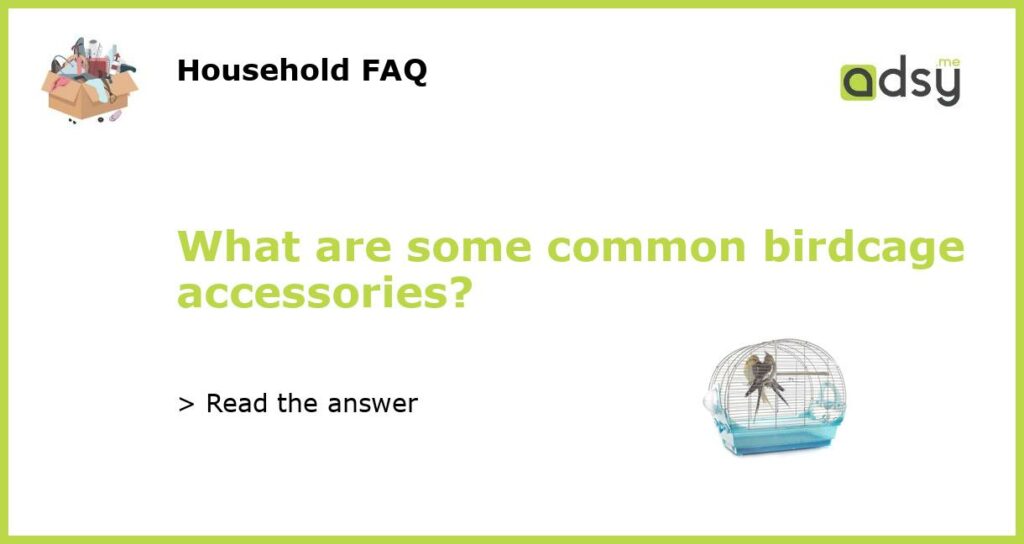Perches
A perch is an essential accessory for any birdcage. Birds spend most of their time standing on a perch, so it’s important to select the right type of perch that meets their needs. Wooden perches are a popular option, as they are natural and provide a comfortable surface for birds to grip. However, you should avoid using sandpaper perches or those with rough surfaces as they can cause damage to your bird’s feet. Perches also come in different sizes and shapes, so make sure to choose one that is appropriate for your bird’s size.
Toys
Birds need a variety of toys to keep them mentally and physically stimulated, and to help prevent boredom. There are many types of toys available, such as ropes, bells, ladders, and puzzle toys. Rotate toys regularly to keep your bird interested and engaged. You can also make your own toys, such as shredding paper or making a foraging box filled with treats.
Food and Water Bowls
Food and water bowls are essential accessories for your birdcage. Select bowls that are easy to clean and made from safe materials, such as stainless steel or ceramic. Avoid using plastic bowls as they can harbor bacteria and may contain harmful chemicals. Make sure to provide fresh water and food daily and clean the bowls regularly to prevent bacterial growth.
Cage Covers
Cage covers can help provide a sense of security for your bird and promote healthy sleep habits. They also help regulate light exposure, which can affect your bird’s circadian rhythm. Choose a cover that is made from non-toxic materials, provides adequate ventilation, and fits your cage properly. Make sure to remove the cover during the day to provide your bird with natural light.
Baths and Sprays
Birds enjoy bathing and taking care of their feathers, so providing a bath or spray bottle in their cage is a great way to promote their well-being. Bird baths can be purchased or made from shallow bowls, and sprays can be used to mist feathers and promote healthy preening. However, make sure to use lukewarm water and avoid misting your bird’s face as they can inhale the water and potentially become sick.






